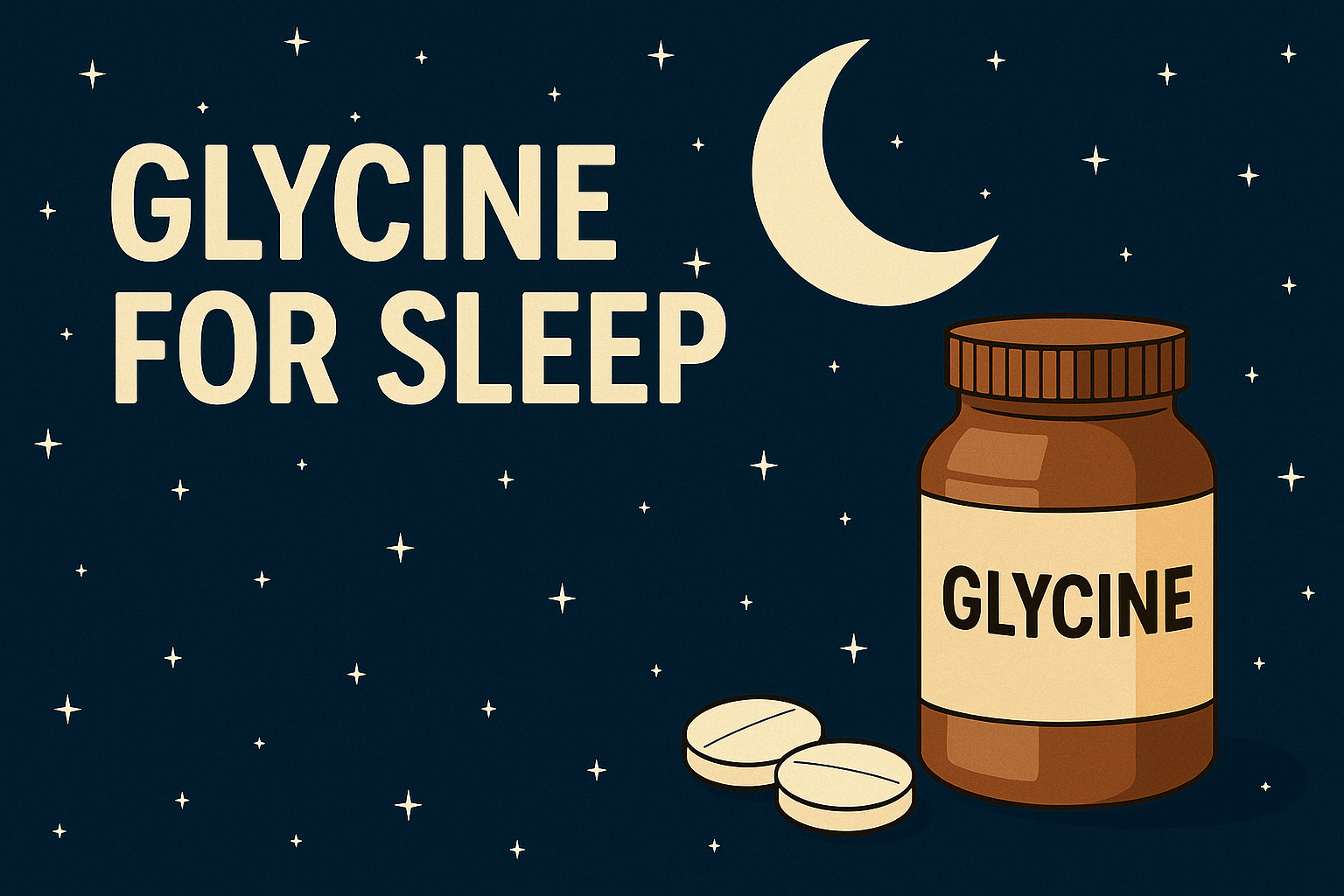Glycine for Sleep
If you’ve tried magnesium, melatonin, or herbal sleep teas and still feel wired at bedtime, you might be missing one simple supplement: glycine for sleep.
This naturally occurring amino acid doesn’t get as much attention as some of the big names in the sleep world — but it should. Glycine may help your body relax, regulate temperature, and ease you into deeper, more restorative sleep.
Here’s what glycine does, how to take it, and what the science says.
🧬 What Is Glycine for Sleep?
Glycine is a non-essential amino acid, meaning your body produces it on its own — but not always in optimal amounts. It plays a role in:
- Brain function
- Muscle performance
- Metabolic health
- Nervous system regulation
It’s also found in collagen, gelatin, and high-protein foods like meat, fish, and dairy.
When used as a glycine for sleep supplement, it helps relax the body without sedation.
😴 How Glycine Supports Better Sleep
Unlike sedatives or melatonin, glycine doesn’t make you feel sleepy — it prepares your body for rest. It works by:
- Lowering your core body temperature, a key trigger for sleep onset
- Activating calming neurotransmitters like GABA
- Supporting the circadian rhythm (your internal body clock)
This makes glycine for sleep helpful if you:
- Struggle to fall asleep
- Wake up frequently during the night
- Feel hot, restless, or anxious before bed
📚 What the Research Says
Clinical studies have shown that glycine may:
- Help people fall asleep faster
- Improve sleep quality and REM cycles
- Reduce daytime fatigue and brain fog
It’s also considered safe and well-tolerated, even at higher doses.
Read more about glycine science on Examine.com
✅ How to Take Glycine
- Typical dose: 3 grams (3,000 mg) taken 30–60 minutes before bed
- Comes in powder or capsule form
- Slightly sweet taste, can be added to herbal tea or warm water
- Often combined with magnesium or L-theanine in sleep blends
🛍️ Where to Buy Glycine in the UK
Glycine for sleep supplements are easy to find online and in health food stores. Look for:
- Pure glycine with no added sweeteners or fillers
- Third-party tested products
- Powder form for best absorption and custom dosing
🧠 Other Benefits of Glycine
In addition to sleep, glycine may also:
- Support joint and collagen health
- Improve memory and focus
- Aid digestion and liver detox
Some people even take small amounts in the morning for mental clarity.
👉 Also read: Supplements for Mental Health
🛏️ Bonus Tip: Combine with Lifestyle Habits
For best results, pair glycine with consistent bedtime routines. Keep your room cool, avoid screens late at night, and wind down with a cup of herbal tea or gentle stretching. Glycine works best when your whole sleep environment supports relaxation.
🧪 Can You Take Glycine Every Night?
Yes — glycine is generally safe for long-term use when taken in appropriate doses. Because it doesn’t cause sedation or dependency, many people use glycine for sleep nightly with no adverse effects. In fact, its gentle support of your nervous system and temperature regulation may even improve the quality of your sleep over time. Just be sure to stay hydrated and monitor how your body responds.
💡 Final Thoughts
If your mind is racing, your body feels hot, or your sleep just isn’t cutting it — glycine for sleep could be the missing piece. This simple, affordable supplement can support deeper, more consistent rest without grogginess or side effects.
It may not be as well-known as melatonin or magnesium, but it’s one of the best natural sleep allies around.

👉 Like this article? Share it on Facebook 💬
➡️ Join our private Facebook group here! [Join Now]

Leave a Reply